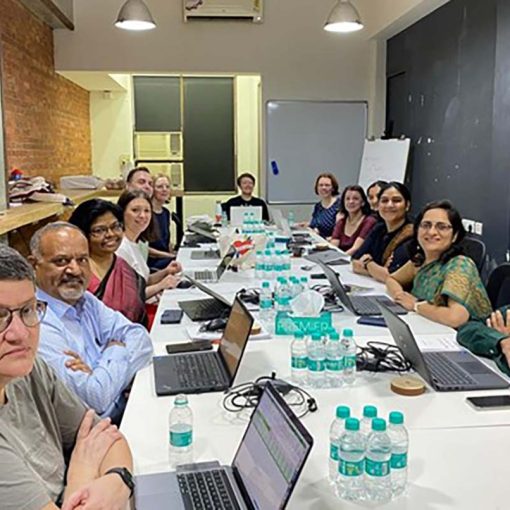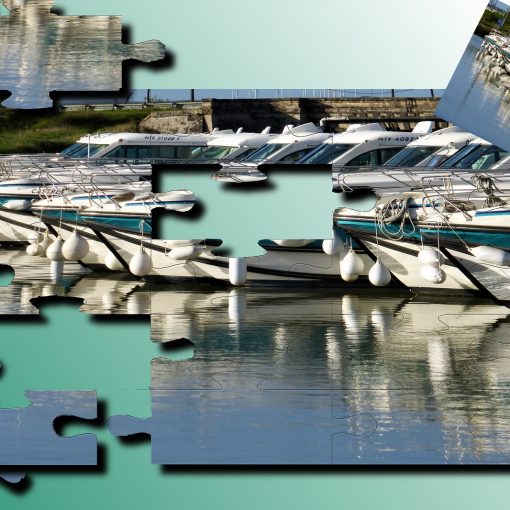Since modern dining transcends mere culinary excellence, restaurants face new challenges in customer attraction. While food quality remains essential, consumer values shape purchasing decisions significantly. Because sustainability drives modern choices, businesses adapt their communication strategies accordingly. Green dining establishments that prioritize comprehensive sustainability measures, from food safety to environmental stewardship, experience enhanced customer satisfaction and retention dramatically. (Chaturvedi et al. 2022.)
Restaurants underline environmental commitments effectively through digital platforms. Although markets have become increasingly competitive, organizations leverage online tools to highlight eco-friendly initiatives. When consumers seek value-aligned dining experiences, digital presence enables meaningful connection building.
Understanding modern diners’ awareness
Environmental responsibility is a crucial factor in modern restaurant operations. The restaurant industry is experiencing a remarkable transformation in environmental awareness. Recent studies provide concrete evidence of this shift, highlighting changes in consumer values. The finding that 78% of diners willingly accept a 5% premium for green dining experiences validates shifting market preferences. (Sarmiento & Hanandeh 2018.)
While environmental consciousness grows rapidly, studies show that 73% of younger generations willingly pay premiums for sustainable options (First Insight, n.d). The research indicates that evolving consumer preferences fundamentally reshape restaurant operational paradigms significantly. Modern restaurants discover that environmental responsibility transitions from optional consideration to essential business practice naturally. This transformation drives comprehensive changes across multiple operational dimensions effectively.
![[Alt text: a plate contains a gourmet meal.]](https://blogit.lab.fi/labfocus/wp-content/uploads/sites/8/2024/12/1066_2024_Integrate-sustainability-into-your-digital-marketing-strategy-1024x594.jpg)
Energy-efficient technologies and thoughtful resource management further reduce operational footprints, demonstrating a comprehensive commitment to sustainability. Sourcing ingredients from local farmers and restaurants can significantly reduce transportation emissions, support the local economy, and provide customers with fresher, seasonal dishes (Hassan et al. 2023). Ingredient transparency revolutionizes customer engagement. The dining experience can attain a greater depth of meaning when the food origin can be identified. Though service excellence and environmental factors remain important, genuine dining experiences create the strongest impact on visitor contentment. (Muskat et al. 2019.)
Emphasizing sustainability in digital marketing content
To effectively align sustainability with digital marketing content in restaurants, several practices can be implemented. Firstly, transparent information about sources in digital menus while using short-term engagement posts, like Instagram Stories, to highlight local ingredients and eco-friendly practices. Secondly, engaging social media campaigns that highlight sustainability initiatives, like composting and biodegradable packaging, can create a strong connection with the audience. Additionally, educational blog posts on sustainability topics can be used on numerous platforms. Positioning the restaurant as a thought leader, the topic can undergo discussions that encourage customers to share their experiences.
Promoting sustainability-focused events and using visual storytelling through videos and infographics can further enhance engagement. Enhancing digital presence can showcase the restaurant’s commitment to sustainability.
High-quality digital marketing content was put to the test for GastroBar Saimaa, the educational restaurant operated by LAB University’s teachers and students. The research underscores the effectiveness of a well-executed digital strategy, focusing on the use of digital products and content. Pop-up events have generated a 17 % increase in additional revenue. Furthermore, digital reach has experienced a substantial 28 % increase compared to previous periods, demonstrating the direct correlation between a strong online presence and revenue growth. (Pham & Maloney 2024.)
Authors
Minh Pham is a second-year Hospitality and Tourism Management student at LAB University of Applied Sciences.
Taina Orpana works as a Senior Lecturer at LAB University of Applied Sciences and is interested to raise awareness of sustainability in business and through marketing communication.
References
Abdou, A. H., Hassan, T. H., & Salem, A. E. 2023. Promoting Sustainable Food Practices in Food Service Industry: An Empirical Investigation on Saudi Arabian Restaurants. Sustainability, 15(16), 12206. Cited 1 Dec 2024. Available at https://doi.org/10.3390/su151612206
Chaturvedi, P., Kulshreshtha, K., Tripathi, V., & Agnihotri, D., 2022. Investigating the impact of restaurants’ sustainable practices on consumers’ satisfaction and revisit intentions: a study on leading green restaurants. Asia-Pacific Journal of Business Administration. Cited 1 Dec 2024. Available at https://doi.org/10.1108/apjba-09-2021-0456
First Insight, Inc. n.d. The state of consumer spending: Gen Z shoppers demand sustainable retail. Cited 1 Dec 2024. Available at https://www.firstinsight.com/white-papers-posts/gen-z-shoppers-demand-sustainability
GastroBar Saimaa. 2022. Karitsan kare. Picture. Cited 3 Dec 2024. Available at https://www.gastrobarsaimaa.fi/wp-content/uploads/2022/09/Karitsan-kare-2-scaled.jpg
Pham, M. & Maloney, C. 2024. Revitalizing GastroBar Saimaa: Expanding its Online Presence Using Digital Contents. Thesis. LAB University of Applied Sciences. Cited 4 Dec 2024. Available at https://www.theseus.fi/bitstream/handle/10024/872443/Expanding%20GastroBar%27s%20Online%20presence%20Using%20Content%20Creation%20-%20Thesis.pdf?sequence=2&isAllowed=y
Muskat, B., Hörtnagl, T., Prayag, G. & Wagner, S. 2019. Perceived quality, authenticity, and price in tourists’ dining experiences: Testing competing models of satisfaction and behavioral intentions. Journal of Vacation Marketing, 25, 480-498. Cited 1 Dec 2024. Available at https://doi.org/10.1177/1356766718822675.
Sarmiento, C. & Hanandeh, E. 2018. Customers’ perceptions and expectations of environmentally sustainable restaurant and the development of green index: The case of the Gold Coast, Australia. Sustainable Production and Consumption. Cited 1 Dec 2024. Available at https://doi.org/10.1016/J.SPC.2018.04.001.




